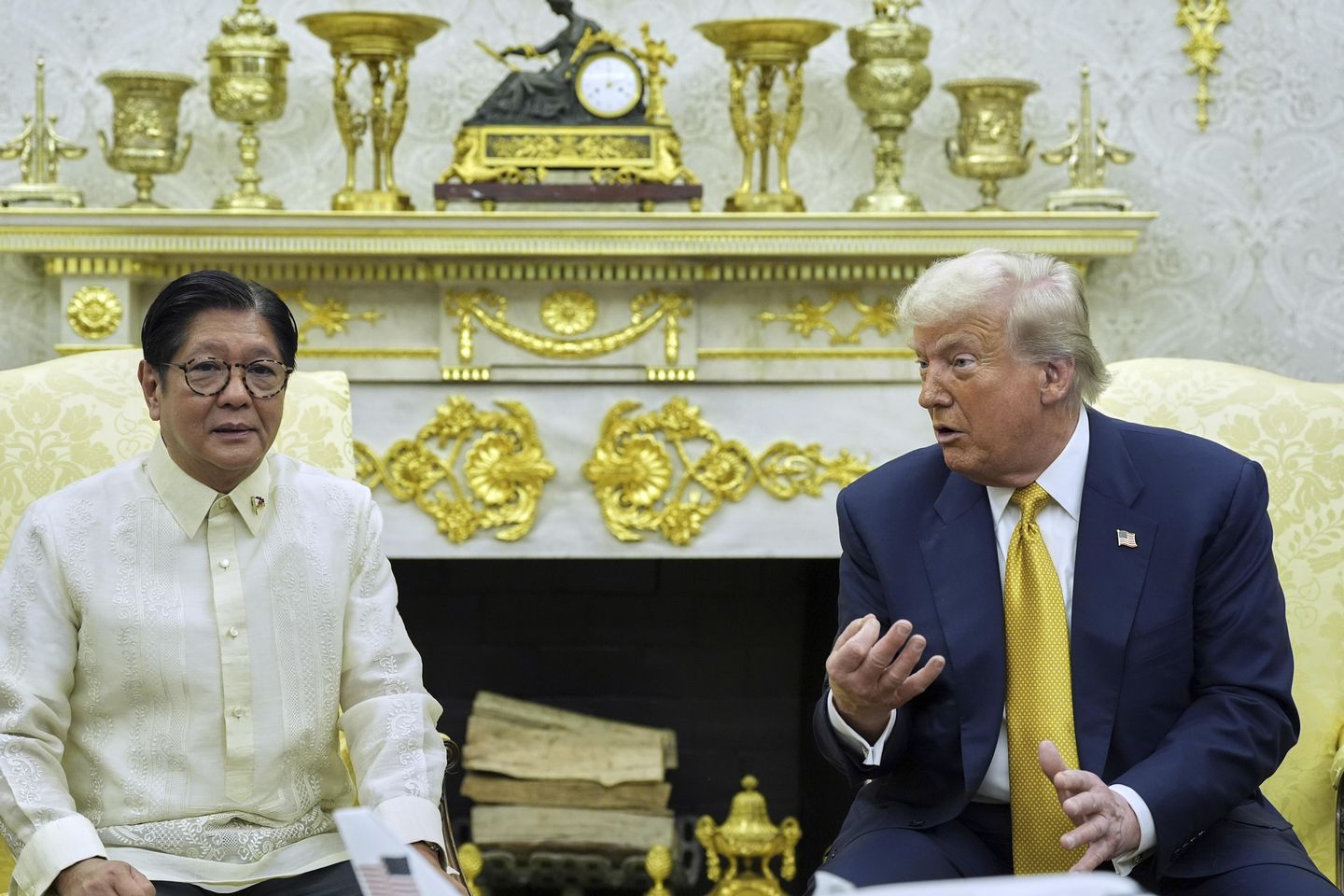
President Trump said Tuesday he will impose a 19% tariff on goods sent from the Philippines to the U.S. while American products entering the Asian island nation won’t be taxed.
Mr. Trump, writing on Truth Social, said President Ferdinand Marcos Jr. was a “tough negotiator” but they reached a pact by the end of the Philippine leader’s visit to the White House.
“It was a beautiful visit, and we concluded our Trade Deal, whereby The Philippines is going OPEN MARKET with the United States, and ZERO Tariffs,” Mr. Trump said.
Mr. Trump threatened to impose 20% tariffs on goods from the Philippines, effective Aug. 1, an increase from the 17% he announced in April.
They landed on 19%.
“In addition, we will work together Militarily,” Mr. Trump said. “It was a Great Honor to be with the President. He is Highly Respected in his Country, as he should be. He is also a very good, and tough, negotiator. We extend our warmest regards to the wonderful people of The Philippines!”
The U.S. had a trade deficit of nearly $5 billion with the Philippines in 2024, meaning the Asian nation sold a larger dollar amount of its products to U.S. consumers, versus what the Philippines bought from American producers.
Mr. Trump and his team are working feverishly to renegotiate trade terms on a nation-by-nation basis before new tariff levels take effect in August.
In some cases, goods from countries will simply be subjected to the tariff Mr. Trump assigned them.
So far, Mr. Trump has negotiated trade deals with the U.K., Vietnam, Indonesia and the Philippines.
Senior administration officials on Tuesday filled in details of the Indonesian deal that was announced last week.
They said Indonesia, the world’s fourth-most populous country, agreed to drop trade barriers, including a tax on internet-related businesses and services, and burdensome pre-shipment inspection requirements.
It also agreed to accept U.S. motor vehicle safety standards, a key priority for the administration and American car exporters.
Indonesian goods will be subject to a 19% tariff as they enter the U.S. – down from the 32% Mr. Trump had threatened – while American goods will enter the Asian nation tariff-free.
“In addition, Indonesia will supply the United States with their precious Critical Minerals, as well as sign BIG Deals, worth Tens of Billions of Dollars, to purchase Boeing Aircraft, American Farm products, and American Energy,” Mr. Trump said on Truth Social. “This Deal is a HUGE WIN for our Automakers, Tech Companies, Workers, Farmers, Ranchers, and Manufacturers.”
Bigger negotiations, notably with the European Union, have been more difficult and may end in tit-for-tat tariffs if the two sides can’t reach a deal.
The U.S. and China are working along a separate track, with a special channel of communication between trade negotiators in Washington and Beijing.
Tariffs are a tax or duty paid by importers on goods they bring in from foreign markets.
Mr. Trump says tariffs are a great way to force companies to return to America or keep their operations in the U.S., employ American workers and create revenue to fund domestic programs.
Foreign countries don’t pay the tariffs directly to the U.S. Treasury. In many cases, U.S. companies will pay the levies, and they might pass on at least some of the cost to consumers through higher prices.
Mr. Trump is betting on no serious inflation from his tariff policies. He says the tariffs will work hand in hand with major legislation he signed this month to cut taxes and spur American investment.
Besides nation-by-nation tariffs, Mr. Trump is imposing high levies on imported steel, aluminum, copper, cars and car parts.











